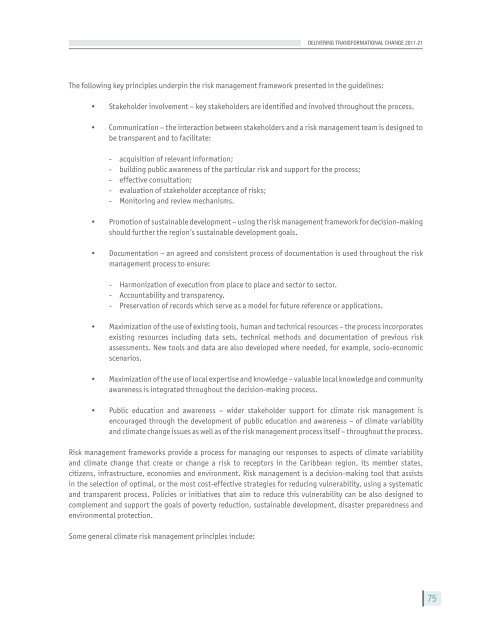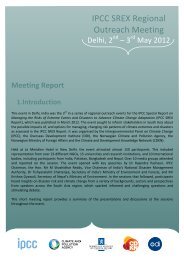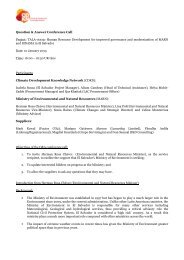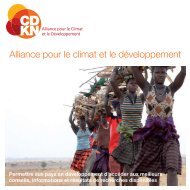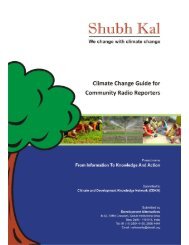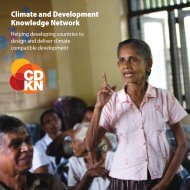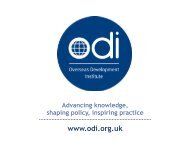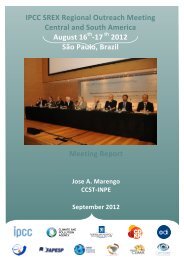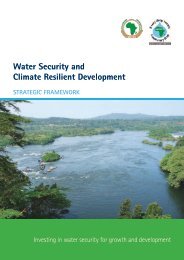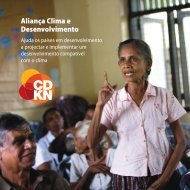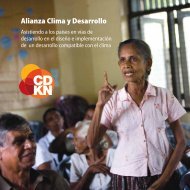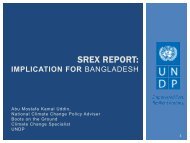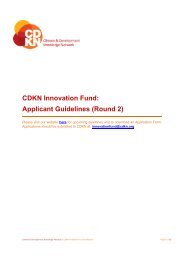Implementation Plan - CDKN Global
Implementation Plan - CDKN Global
Implementation Plan - CDKN Global
- No tags were found...
Create successful ePaper yourself
Turn your PDF publications into a flip-book with our unique Google optimized e-Paper software.
DELIVERING TRANSFORMATIONAL CHANGE 2011-21The following key principles underpin the risk management framework presented in the guidelines:• Stakeholder involvement – key stakeholders are identified and involved throughout the process.• Communication – the interaction between stakeholders and a risk management team is designed tobe transparent and to facilitate:- acquisition of relevant information;- building public awareness of the particular risk and support for the process;- effective consultation;- evaluation of stakeholder acceptance of risks;- Monitoring and review mechanisms.• Promotion of sustainable development – using the risk management framework for decision-makingshould further the region’s sustainable development goals.• Documentation – an agreed and consistent process of documentation is used throughout the riskmanagement process to ensure:- Harmonization of execution from place to place and sector to sector.- Accountability and transparency.- Preservation of records which serve as a model for future reference or applications.• Maximization of the use of existing tools, human and technical resources – the process incorporatesexisting resources including data sets, technical methods and documentation of previous riskassessments. New tools and data are also developed where needed, for example, socio-economicscenarios.• Maximization of the use of local expertise and knowledge – valuable local knowledge and communityawareness is integrated throughout the decision-making process.• Public education and awareness – wider stakeholder support for climate risk management isencouraged through the development of public education and awareness – of climate variabilityand climate change issues as well as of the risk management process itself – throughout the process.Risk management frameworks provide a process for managing our responses to aspects of climate variabilityand climate change that create or change a risk to receptors in the Caribbean region, its member states,citizens, infrastructure, economies and environment. Risk management is a decision-making tool that assistsin the selection of optimal, or the most cost-effective strategies for reducing vulnerability, using a systematicand transparent process. Policies or initiatives that aim to reduce this vulnerability can be also designed tocomplement and support the goals of poverty reduction, sustainable development, disaster preparedness andenvironmental protection.Some general climate risk management principles include:75


